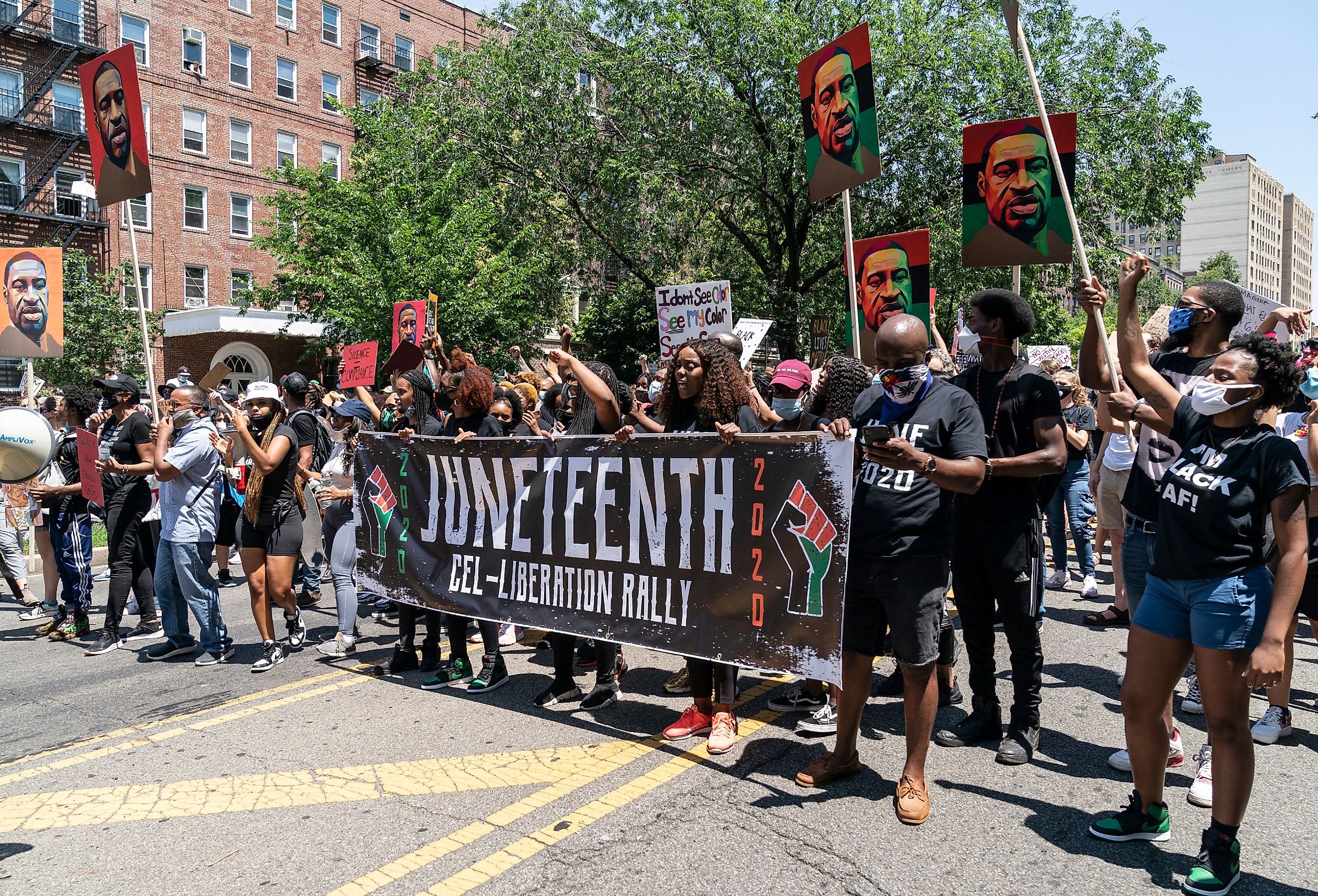
What is Juneteenth?
Although only officially recognized as a federal holiday in the United States in 2021, June 19, or “Juneteenth,” has long been a significant date for Americans. What began as a local celebration in Texas to commemorate the belated announcement of freedom for enslaved African Americans has since become a nationwide observance.
But how did this local celebration get started, and why does it remain so important to America today… perhaps more so than ever? As you look forward to this year’s Juneteenth, here is what to know about the history, the cultural significance, and the relevance of this important milestone on the nation’s calendar.
Celebrating Freedom: The Story of Juneteenth
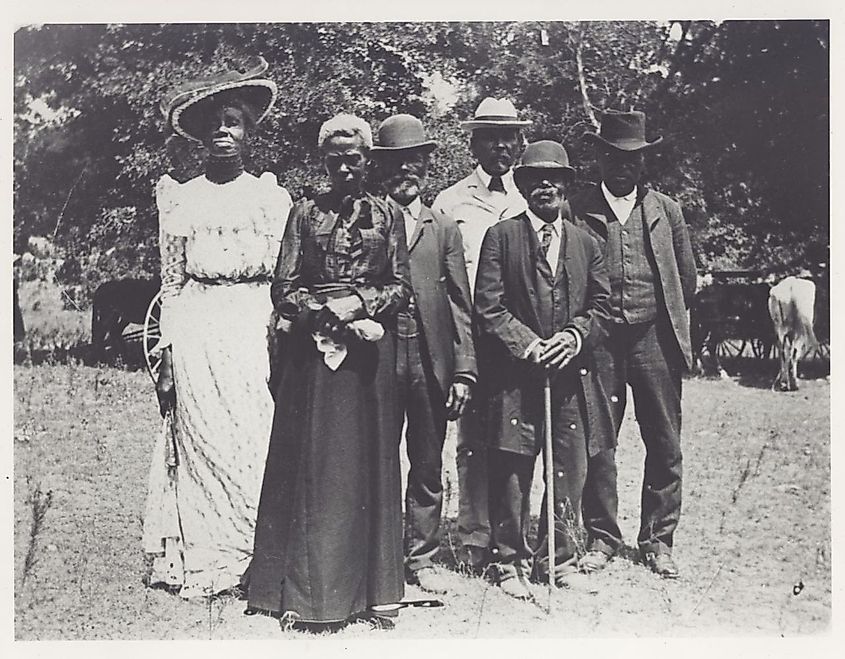
Juneteenth carries a profound legacy that dates back to the Civil War. It was on January 1, 1863, two years into the conflict, that President Abraham Lincoln issued the Emancipation Proclamation declaring all slaves in Confederate states to be free. The enforcement of this proclamation was slow and uneven, particularly as the rebellious southern states didn’t surrender until two years later on April 9, 1865.
Two months after hostilities ceased, on June 19, 1865, Union General Gordon Granger arrived in Galveston, Texas, to announce the end of the bloody Civil War and the freedom of all enslaved people in the state. As the news spread, newly freed African Americans organized community festivities to celebrate their newfound freedom.
It's Official: Juneteenth National Independence Day
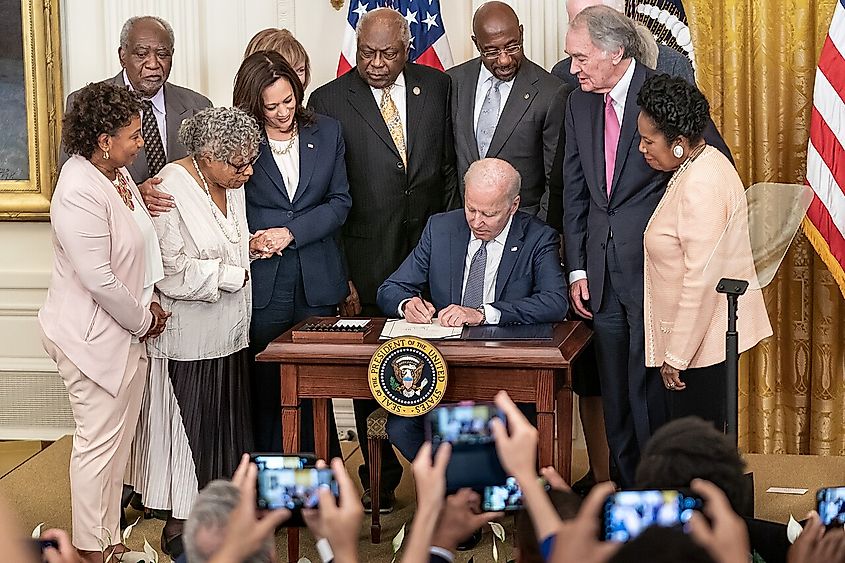
Juneteenth became an official national holiday in the United States on June 17, 2021, when President Joe Biden signed the Juneteenth National Independence Day Act into law. It was passed by Congress with overwhelming bipartisan support as lawmakers on both sides of the political fence recognized the significance of commemorating the end of slavery.
Long in the making, the decision to make Juneteenth the country’s 11th national holiday (and the first since Martin Luther King Jr. Day in 1983) was a response to decades of advocacy and grassroots efforts by African American communities and civil rights activists. By making Juneteenth a federal holiday, the US government acknowledged the long-overdue need to honor the struggles and celebrate the achievements of African Americans, whose ancestors had endured the horrors of slavery.
President Biden, in his remarks during the signing ceremony, emphasized the importance of Juneteenth, stating, "Great nations don't ignore their most painful moments. They embrace them... It is simply not enough just to commemorate Juneteenth. After all, the promise of equality is not going to be fulfilled automatically. It's going to take constant and concerted action."
Juneteenth’s Cultural Significance
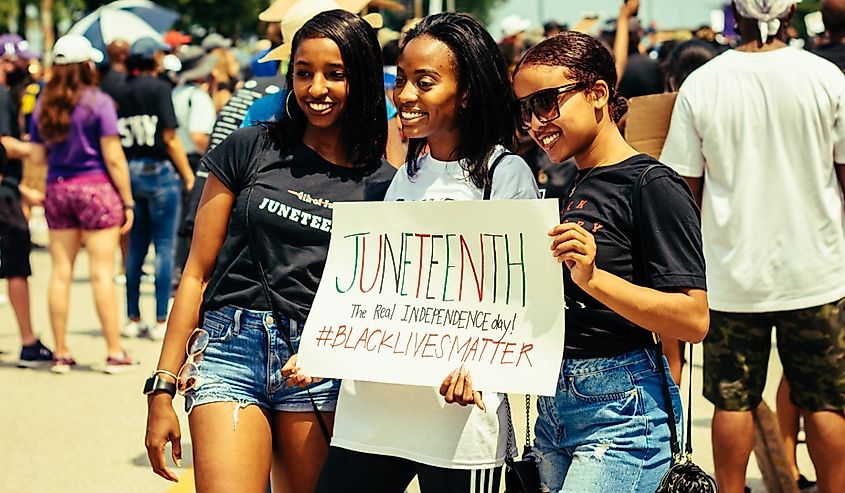
Juneteenth, a combination of the words “June” and “nineteenth,” marked a pivotal moment in American history and holds profound cultural significance, particularly within African American communities. A day that commemorates not only the end of slavery but also the resilience and strength of African Americans, Juneteenth serves as a reminder of the atrocities of slavery and the ongoing fight against systemic racism.
The day is also a testament to the enduring spirit of freedom and the importance of community and family. For many, Juneteenth is an opportunity to honor ancestors and recognize their struggles and contributions to the American narrative. It’s a day that bridges past and present, linking the historical fight for emancipation with contemporary movements for justice and equality.
How is Juneteenth Celebrated?
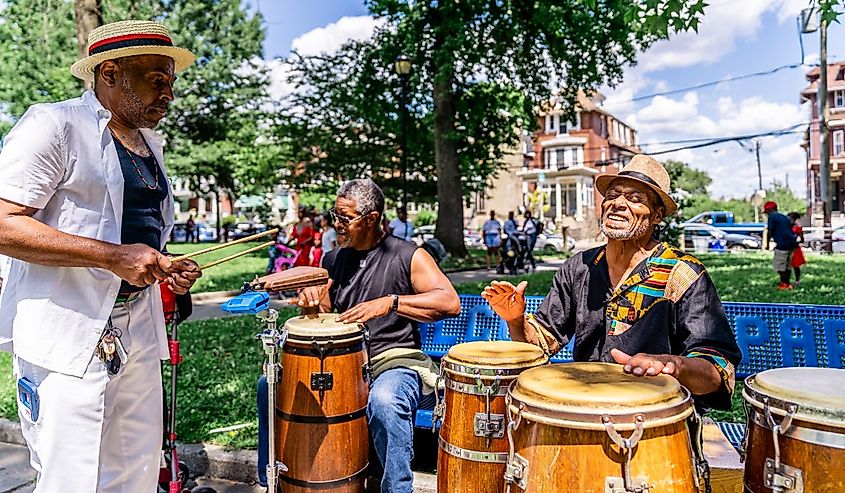
Juneteenth celebrations are rich in traditions that blend historical reverence with family-friendly festivities including parades, street fairs, cookouts, family reunions, and historical reenactments. Celebratory events will often include reading the Emancipation Proclamation, sharing stories about the road to freedom, and singing traditional songs like Lift Every Voice and Sing, a hymn written in 1900 from the African American perspective.
Food plays a central role in Juneteenth celebrations, with barbecues and potlucks featuring prominently. Traditional dishes include red foods and drinks, such as red velvet cake and strawberry soda, symbolizing resilience and the bloodshed of enslaved ancestors. Music and dance are also integral, with performances ranging from gospel choirs to contemporary R&B and hip-hop artists.
Many communities also host lectures, panel discussions, and cultural exhibitions that explore African American history, culture, and contributions to society.
Where is Juneteenth Celebrated?
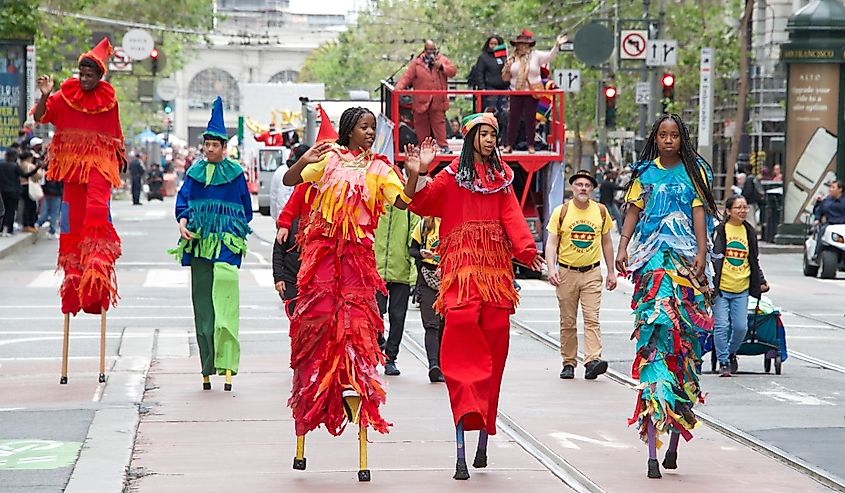
Juneteenth is celebrated across the United States and has even garnered international recognition. Big or small, each region and community celebrates Juneteenth in its own way, often reflecting local traditions and cultural influences.
For those wanting to experience one of the larger celebrations of this national holiday, here are a few of the biggest Juneteenth celebrations to consider:
Galveston, Texas
As the birthplace of Juneteenth, it’s only fitting that Galveston gets pride of place. The city’s vibrant Juneteenth Festival features parades, historical reenactments, live music, and cultural exhibitions. Other fun things to do in Galveston on Juneteenth include touring historical sites such as the historic Ashton Villa where General Granger's announcement was made, and the Juneteenth Marker commemorating the emancipation of slaves in Texas.
Washington, D.C.
As the nation’s capital, Washington, DC, hosts one of the country’s most significant Juneteenth events. In addition to marches, rallies, and educational forums, the Smithsonian’s National Museum of African American History and Culture organizes special exhibits and public programs to commemorate the day. (It’s worth noting that while all outdoor events at the museum are free, those taking place indoors will still require admission.)
Houston, Texas
Houston's Emancipation Park, founded by former slaves in 1872, is a central location for Juneteenth celebrations and hosts concerts, cultural performances, educational workshops, and health fairs to mark the occasion. Houston's Juneteenth celebrations take place throughout June and are known for their vibrant atmosphere, attracting thousands of attendees each year.
Atlanta, Georgia
Atlanta, a city with a rich African American history, celebrates Juneteenth with a variety of events. One of the largest events in the Southeast, the Juneteenth Atlanta Parade & Music Festival is a highlight and features a grand parade, live performances, food vendors, and art displays.
Tulsa, Oklahoma
Tulsa Juneteenth is particularly poignant given the city's history, with the 1921 Tulsa Race Massacre being a sobering reminder of the evils of racism. The Greenwood District, also known as Black Wall Street, hosts events that include parades, music festivals, and historical tours that honor the legacy of resilience within the city’s African American community.
The Future of Juneteenth
The designation of Juneteenth as a federal holiday has certainly elevated its importance, encouraging more widespread and inclusive celebrations. This recognition also provides an opportunity to educate broader audiences about the historical and cultural significance of the day.
It also signifies a growing awareness and appreciation for African American history and culture, offering at the same time an opportunity to foster unity and solidarity in the ongoing fight for equality, justice, and freedom. From its origins in Galveston to its recognition as a federal holiday, Juneteenth has grown into a nationwide celebration of African American heritage, resilience, and contributions.











